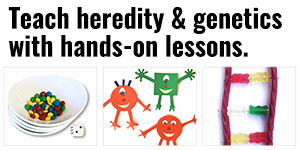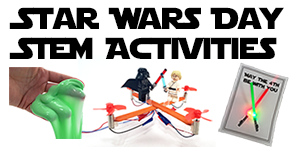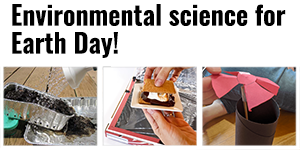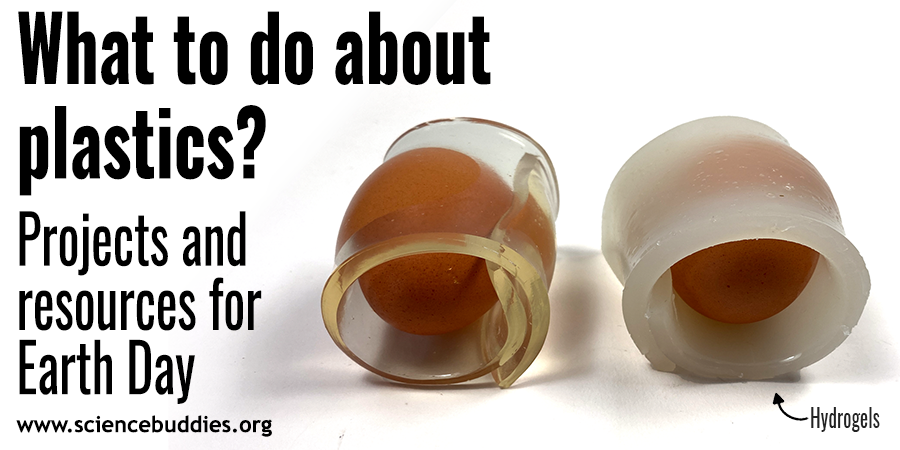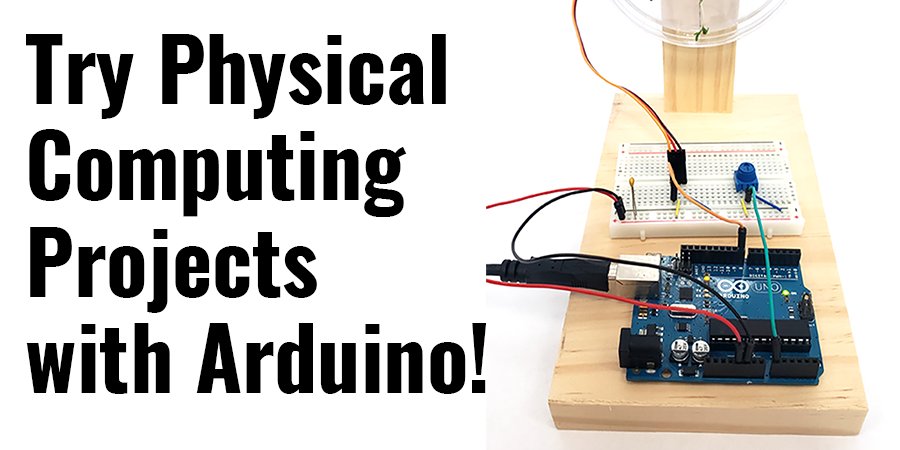Explore Coding and Electronics with Raspberry Pi
The Raspberry Pi Projects Kit offers a customizable set of activities for progressive learning. Students use Scratch to write computer programs and combine those programs with circuits and sensors for interactive fun.
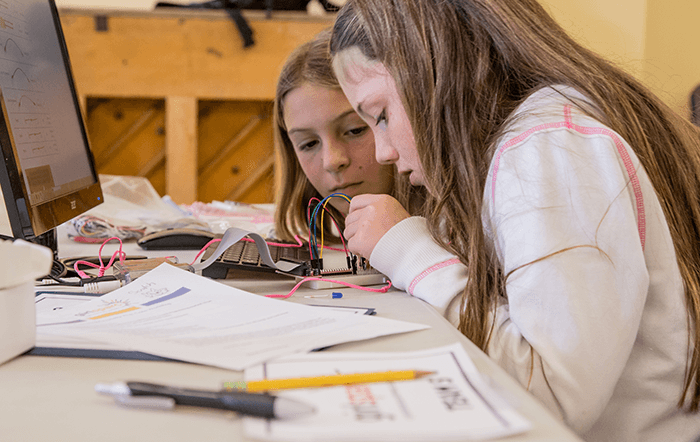
The Raspberry Pi Projects Kit from Science Buddies works with a series of eight interactive activities that combine computer programming and electronics. With the kit, students set up their own Raspberry Pi and then write Scratch programs that control or respond to sensor data from GPIO pins. This enables students to build breadboard circuits that work with Scratch programs to play sounds or activate lights, for example, based on sensor input.
The progressive series of Raspberry Pi projects are designed to be accessible for students who have never coded before but also engaging for students who have some programming experience. These projects are often used by individual students who are interested in learning more about computer programming or students who want to work on activities that take coding beyond the screen. With a blend of code and electronics, the Raspberry Pi projects set students up for hours of creative hands-on STEM exploration using different sensors.
The Raspberry Pi Projects Kit activities also work well in group environments, out-of-school programs, and summer camp settings.
Raspberry Pi at Summer Camp
In coordination with a local non-profit mentoring organization, Paul Popick, a retired IBM technologist, runs a summer camp in Easton, Maryland. Last summer was Paul's fourth year offering the camp.
Paul says the week-long camp focuses on life and physical sciences and emphasizes experiential learning. "Each morning the kids do an experiment with a scientist. In the afternoons they work on their projects. The experiments include food testing, water testing, digital circuits, organic compounds, phosphorescence, and static forces."
Kids attending camp choose the projects they will do, and last summer, Paul had several campers who chose Raspberry Pi. During the week of camp, Paul says most campers "completed 6 or 7 of the projects" from the Raspberry Pi series. "One of the kids also went on to develop a Python program for a Rock Paper Scissors game," he adds.
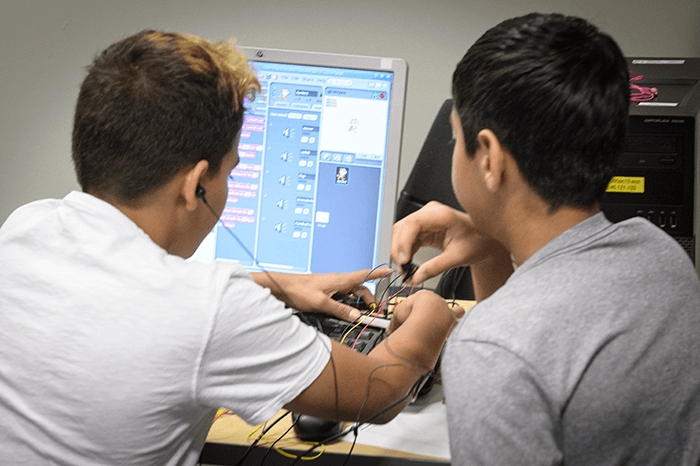
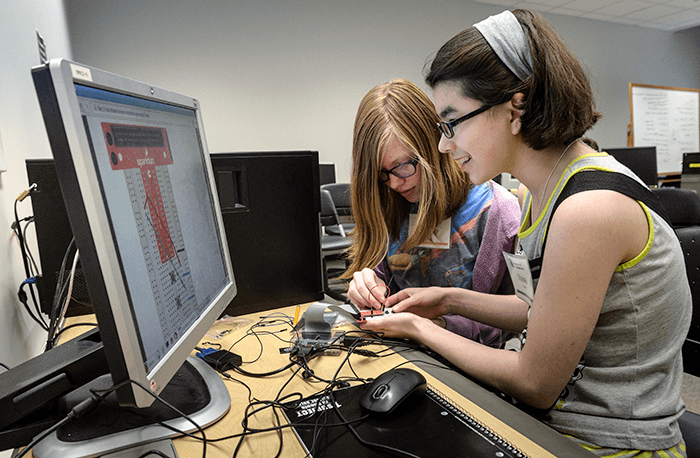
The Raspberry Pi Projects Kit
The Raspberry Pi Projects Kit is now available in two versions, the Complete Raspberry Pi Projects Kit, which contains the Raspberry Pi unit, and the Raspberry Pi Circuit Building Kit, which contains only the electronics components (for someone who already has a Raspberry Pi). Directions for all eight projects in the series are accessible online.
Tip: For educators using the Raspberry Pi Projects kit and project series, the Best Practices for Using the Raspberry Pi Projects Kit in a Classroom or Out-of-School Setting resource has tips and suggestions for working on coding and electronics activities with groups.
See also: The Girl Factor: Creative Code and Computer Programming
Categories:
You Might Also Enjoy These Related Posts:
- Plastics and Earth Day - Science Projects
- Arduino Science Projects and Physical Computing
- 10+ Robotics Projects with the BlueBot Kit
- 5 STEM Activities with Marshmallow Peeps
- March Madness Basketball Science Projects: Sports Science Experiments
- Women in STEM! More than 60 Scientists and Engineers for Women's History Month
- Explore Artificial Intelligence and Machine Learning with Student AI Projects
- 10 Reasons to Do the Rubber Band Car Engineering Challenge


